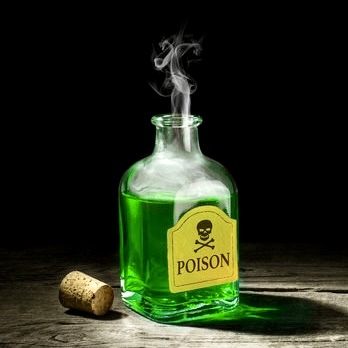Some Brief Thoughts on the Subject of Addiction
(I warned you it would get eclectic around here).
I know a little bit about addiction. For instance, I know how ignorant I once was, and how, by the same token, many of us are still.
Understanding addiction
I used to conceive of addiction in terms of dependence: an alcoholic or drug addict (or whatever) abused their substance of choice because they were addicted to it. And by that I understood that they couldn’t not use it.
This misconception made it quite easy for me to overlook my own addictions. I highly doubt that I am the only one. Only after I discovered a decent definition of addiction did it begin to make sense.
Addiction is “a pathologic relationship with a mood-altering experience that produces life-damaging consequences.”
Now there’s a sack of subjective qualifications to work through! That’s probably one of the most valuable features of the definition – it’s not quite so easy for someone else (here I am really referring to someone who hasn’t come to terms with their own addictions) to slap the extremely stigmatizing label on someone else. It’s a definition for each of us to consider and wrestle with for ourselves.
Some Brief Thoughts on the Subject of Addiction
The Roots of Addiction
The article I sourced that quote from highlights that, for many (though not all) addicts, shame lies at the root of their behavior. Shame is probably a profound enough issue all by itself for someone to wrap an entire website around. I’m sure they have, and I think that is wonderful. I’m not qualified to delve into it, but I do want to highlight two other contributors that I understand better.
Alienation
I’ve learned that alienation from one’s Society is big driver of addiction. In Elysium (II) I discussed this a bit. Joseph Campbell observed –
If your private myth, your dream, happens to coincide with that of the society, you are in good accord with your group. If it isn’t, you’ve got a long adventure in the dark forest ahead of you.
Joseph Campbell – (I’m Too Lazy to Look for That Book Right Now)
That long adventure in the dark forest can wear you down. In my own experiences with addiction treatment I encountered pressure to accept that society was fine – I was the defective party. I had to wrestle with this prospect a lot. Ego and addiction often walk hand in hand, and a big part of my work involved diving head first into more humility than I had ever known. It’s something I have to make continued efforts to focus on (so if I ever come off as arrogant please let me know!!!).
I have been able to recognize deep personal flaws and defects of character, and to humbly own up to it when I make mistakes (I make a lot of mistakes). It turns out that this is enough to get something transformative out of the process. But despite open-hearted consideration, at the end I couldn’t accept Society was right; that it was my perceptions that were distorted.
The Addict? Or the Society?
The addict is admonished to accept that their own decision making process is flawed, and cannot be trusted. They must submit important decisions to a community of peers for input – a process called “group consciousness.”
I actually value “group consciousness.” In this context, at least from my own experience, it’s not “group think.” It’s collective input from a small group of thoughtful humans, who you know in some degrees more deeply than even their closest loved ones, who care about each other and who have nothing personal to gain from the input they offer.
But I reject the default assumption that Society is right and the addict is wrong. The addicts I have known have been some of the smartest, most perceptive people I have encountered. I think it’s far more likely that a fucked-up Society is churning out loads sensitive, intelligent, perceptive addicts, than that the bulk of alienation-fueled addiction is due to defects in the addicts.
I think this is an issue that the addiction recovery profession is going to have to address.
Some Brief Thoughts on the Subject of Addiction
Work Hard – Play Hard
Here’s another obvious reason I think Society churns out a host of addicts (with a massive percentage altogether ignorant of their addictions). Addiction recovery directs a lot of focus towards moderation. The aphorisms reflect this – “easy does it,” “one day at a time,” etc. I can think of no better prescription for addiction than “Work Hard – Play Hard.” And a society that celebrates this lifestyle as the path of aspiration will pave the road with broken bodies. High-functioning addicts form a large percentage of the cohort who “arrive.” And most of those will be ignorant of their condition.
In high school my friends would often point out my tendencies to excess (at that time it was “harmless” or constructive things like exercise or guitar playing). If they said something like “all things in moderation,” I would respond that I observed moderation in moderation, or that “anything worth doing is worth doing obsessively.” Due to my total misunderstanding of addiction, at the very same time I believed myself completely immune to it. Nothing could have been further from the truth.
Some Brief Thoughts on the Subject of Addiction
Some Final Thought on our Misunderstanding of Addiction
There’s an easy way to tell whether someone “gets” addiction or not. If they focus mostly on the object of addiction, they probably don’t understand anything about it. What you learn by focusing on the object of an addiction will be as enlightening as asking those suffering bed-ridden morbid obesity what their favorite flavor of ice cream is. It’s really not that important.
A good addict (like myself) can attach to anything. My first addiction was food. That’s probably still my biggest, and it’s deadly (In one form or another I’m sure it has claimed far more lives than we can ever comprehend). After that (and in conjunction) came reading. Then exercise, guitar playing, alcohol, marijuana, sex/love, boatbuilding, the news, and tobacco. (Yep, tobacco came last and it took years of effort). I’m sure there are others. As I push myself to publish something new to this site every day, I start to wonder…well, you get the picture. It’s like whack-a-mole – you may get a momentary handle on one, but while you do the next one is already popping up.
Addiction is merely a defective coping mechanism attempting to compensate for an unmet need. I think for many of us out here, obviously myself included, at least one seriously underserved need is for the type of community that Society can never offer.
Mentioned here as an afterthought but probably deserving an entire website of its own, is the great co-occurrence of Mental Illness and Substance Abuse. I’m sure that has played a part in my own adventures as well.
The Daily Stone





Well, indeed, I think it’s the lack of the community we can witness across the Western world that pushes us to find satisfaction in life elsewhere, such as being addicted to something.
The society, based totally in materialistic values, doesn’t provide ‘food’ for the soul, and this is why so many become addicted to different things.
Btw, reading is a great addiction! Before my son was born, I could spend a day on just reading a book.
Thanks Ekaterina 🙂
I agree about reading – as far as addictions go, I would argue it’s the best of all possible options! That said, at least for myself I know it is a genuine “addiction” (i.e. a pathological relationship with a mood-altering experience that produces life-damaging consequences). I read to excess. I would read so much that at times I made myself feel “sick” sometimes! And I have sacrificed social connections by prioritizing reading instead of participation in opportunities to connect with others. I know for a fact that I still do it – I catch myself reading on my phone in social situations when I could instead be sharing life with wonderful human beings around me. For myself, I consider those “life-damaging consequences.” It’s something I have to stay conscious of 🙂